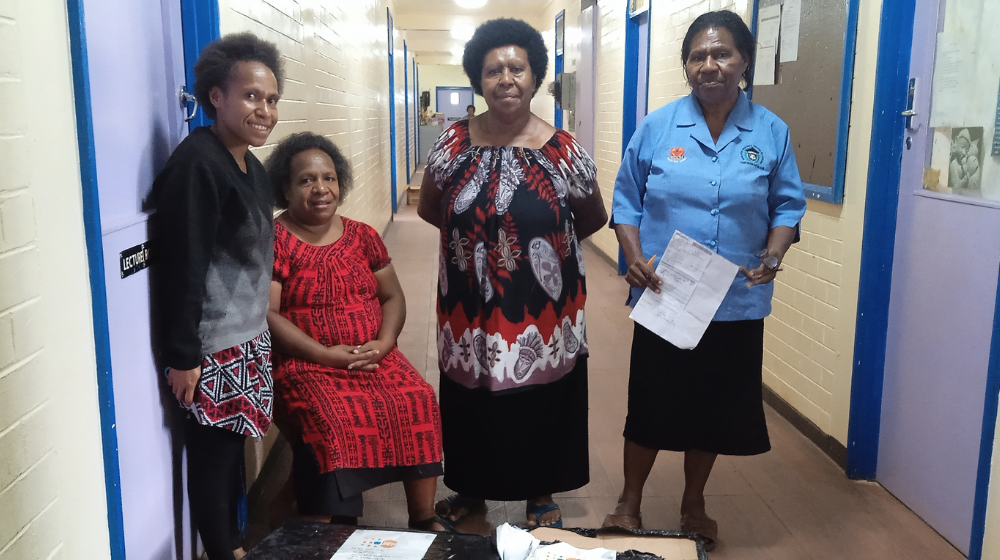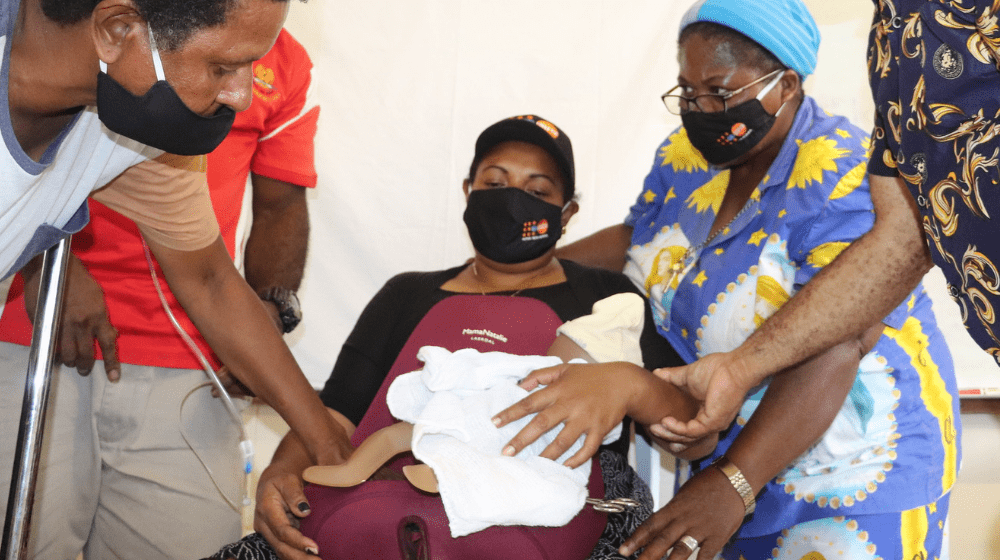Midwifery students from St. Mary’s School of Nursing in Kokopo, East New Britain, have shared their satisfaction and excitement after using new birthing simulators supplied by the United Nations Population Fund Country Office and Laerdal Global Health (Norway) last month.
According to the school’s Midwifery Coordinator, Ms. Francesca Bevi, the simulators help her 17 students build not only their competence but also their confidence, as the mannequins allow students hands-on practice before they enter clinical practice. Importantly, students can make mistakes, have these corrected, and repeat their correct techniques, before attending to live births. Ms Bevi shared that such practice is essential for women to receive the best quality of care.
“It is very important as educators and students to use these simulators when practicing post-postpartum hemorrhage, normal delivery, and manual removal of the placenta,” she said. “This helps better our skills to do the right thing and save lives when it comes to the labour ward.”
These simulators resemble something of a forward-facing backpack, containing material placenta with an umbilical cord and a dummy baby, which can be worn by an. The inside also features a bladder containing fluid that can be released by the instructors to simulate post-partum bleeding.
Fourteen simulators, named Mama Nathalie and Mama Birthie, were distributed to seven nursing schools around the country, including the Highlands School of Nursing, St.Mary’s School of Nursing, Pacific Adventist University (PAU), Port Moresby General Hospital, University of Goroka, Lae School of Nursing, and Milne Bay Provincial Health Authority.

The Dean of Health Sciences at PAU, Ms. Ellie Korave, also expressed her thanks after her school received their simulators.
“We value UNFPA’s great support and are so eager to work in partnership with UNFPA to promote maternal, newborn, child and adolescent health to survive, thrive and transform communities and societies.”
The United Nations Population Fund continues to invest in midwives to deliver a world where every pregnancy is wanted and every childbirth is safe. According to Country Representative Ms. Marielle Sander, this is at the heart of UNFPA’s transformative results, especially in Papua New Guinea.
“These birthing simulators were given to the Midwifery Society of Papua New Guinea and to these schools so that midwives and students can keep their life-saving skills up to date.”
Ms. Francesa Bevi, in expressing her appreciation for this new educational equipment, emphasized that a huge gap remains between the number of midwives in the country and the child-bearing population.
“PNG needs to train more midwives to upscale the midwifery workforce in both the rural and urban setting,” she said. “Many rural health facilities do not have a midwife and the graduate output of midwives is less than a hundred.”
Papua New Guinea faces an urgent shortage of midwives. In 2023, UNFPA has supported 10 students at the University of Goroka with scholarships to study midwifery and continues to work in partnership with the National Department of Health and the Midwifery Society to invest in addressing this shortage. UNFPA also works with midwifery educators to deliver emergency obstetric and newborn care training to practicising midwives.


